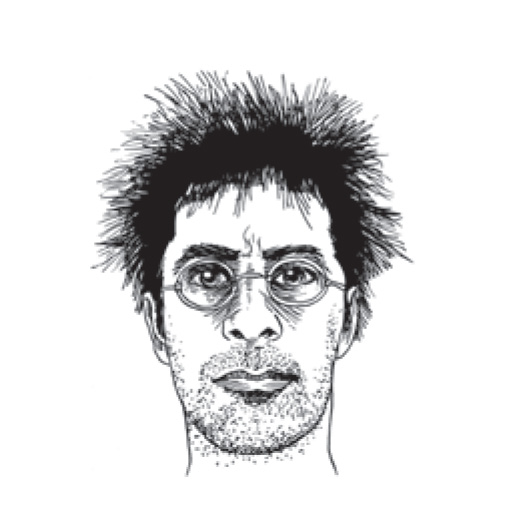I knew I wanted to interview Julian Gough—“rhymes with cough,” he says—when I was about halfway through his essay “Divine Comedy.”
There, in the May 2007 issue of Prospect magazine, he railed against the modern literary novel in all its desperation and seriousness, and urged a return to funnier roots. “You may think that to praise The Simpsons at the expense of Henry James makes me a barbarian,” he wrote there. “Well, it does, but I’m a very cultured barbarian.” In that essay, he examined the death of the Greek comedy, the surge of tragedy in the Middle Ages, the few-and-far-between funny writers of the modern era, and the culpability of universities in our collective tragic literary leanings—all with a terrific combination of admiration for and irreverence about literary tradition.
At the end of the essay, I read that Gough had recently won the National Short Story Prize (now known as the BBC National Short Story Award), the biggest award in the world for a single short story. Then, soon after reading “Divine Comedy,” I heard that he had moved from his home in Ireland to Berlin. Based on the content of his essay and the scant biographical information I had, I assumed he was some sort of rebellious mad genius privileged enough to have the kind of expensive European education most of us could never sit through, let alone afford. No doubt he spoke five languages and was flush with family money, the foundation on which so many writers have built their grand literary musings, which would also explain his ability to move from place to place at his leisure—internationally, even!
It wasn’t until well after reading his novels, Juno and Juliet and Jude: Level 1, that I became acquainted with the real Julian Gough: an incredibly intelligent, often-broke writer (educated at the National University of Ireland, Galway) who moved to Berlin after being evicted from his place in Ireland, a onetime singer for a “literary rock band” called Toasted Heretic, and a very funny man loaded with some very serious literary ambitions.
Gough participated in this interview—over his own objections, at times—in fits and starts over what will undoubtedly prove to be one of the busier months of his life, as he completed rewrites on his overdue third novel (Jude in London, now available in the UK) and a play for the BBC that was already behind schedule. Though he wished to delay our conversation for several months, he was kindly receptive to my pleas that we carry on for just one more question. And another. And another.
—Drew Smith
*
THE BELIEVER: It’s interesting that...
You have reached your article limit
Sign up for a digital subscription and continue reading all new issues, plus our entire archives, for just $1.50/month.
Already a subscriber? Sign in





